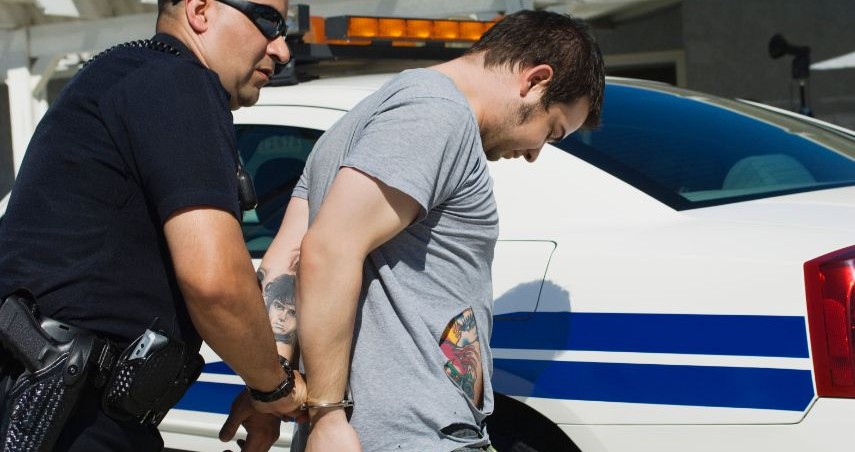Schedule a Consultation
DWI 3rd Offense in Texas – What You Need to Know

Being pulled into the court system for any reason is intimidating, but facing criminal charges can be particularly frightening and life-altering. Driving While Intoxicated (DWI) charges are taken very seriously in Texas and, in extreme situations, can even lead to life in prison. After the first DWI conviction, subsequent DWI offenses are handled more harshly. A knowledgeable DWI attorney in Houston, TX, can help minimize the severity of a DWI 3rd offense in Texas.
What Is Considered a DWI in Texas
A DWI charge is often used synonymously with the term Driving Under the Influence (DUI), although they are different. DWIs refer to operating a vehicle while using substances, such as drugs or alcohol, that hinder your mental and physical abilities. One measurement of intoxication is Blood Alcohol Content, or the percentage of alcohol in your bloodstream. If you operate a car or other vehicle with a BAC of .08% or more, it is considered a DWI.
In some cases, even a BAC of less than .08% is considered unacceptable. Texas does not allow driving with even low levels of alcohol in your system if you are under the age of 21, which will give you a DUI. Drivers holding commercial driver’s licenses and operating that particular category of vehicle are also held to a higher standard and may be arrested for a DWI with a BAC of .04%.
Penalties for a 3rd DWI
When you are initially arrested for a DWI, it is possible that you will spend hours or up to a couple of days in jail. You will be booked at the jail, and you will likely get a notice informing you that your license is going to be revoked, which you can contest with the Department of Motor Vehicles in the first 15 days after you receive the notice.
If convicted of a DWI, there are a host of penalties that could be applied to your case. Third and subsequent DWIs are considered felonies. How lenient the judge chooses to be often depends on the quality of legal representation you bring, especially if it is a repeat offense. Possible penalties for a 3rd offense include:
- Fines: These are capped at $10,000, but the amount you owe may exceed this as the court can add on other fees and payments that are in a separate category from fines.
- Jail Time: The maximum time you could spend in prison is 10 years. The minimum time in prison is theoretically two years, but a plea deal or commuting prison time to probation can decrease this, particularly if a lawyer advocates on your behalf.
- License Suspension: 1-2 years of license suspension. Refusal to take a chemical test will likely lead to 2 years of license suspension.
- Probation: Jail time is more likely to be commuted to probation in 1st or 2nd offense cases, but it is possible you may be given a limited number of years of probation.
- Community Service: A judge may assign you a certain number of hours of community service.
- DWI Classes: It is fairly common for DWI offenders to have mandated alcohol or substance-use-related classes.
- Ignition Interlock Device: You may be required to only drive vehicles with an ignition interlock device, where you will not be able to operate the vehicle if intoxicated.
How to Minimize Negative Impacts of a 3rd DWI Offense
If you are pulled over for a DWI, know that refusal to take a chemical test is likely to exacerbate the situation. This is due to Texas’s Implied Consent Laws. When reviewing a DWI case, the judge may also pass down stricter penalties if you are rude or uncooperative with law enforcement, so remain calm and cooperative.
When being arrested and booked, it is important to remember that you have the right to remain silent and wait to speak to an attorney. Reach out to a qualified lawyer when given the opportunity, as they can help minimize the severity of your DWI charges.
FAQs
Q: What Are the Most Common DWI Penalties?
A: Fines and jail time are possible penalties, regardless of how many DWI offenses you have on your record. Losing your driver’s license for some amount of time is also common. Probation is more likely for a first-time offense and less likely for subsequent offenses.
Q: How Long Do You Stay in Jail for a DWI in Texas?
A: Length of time in jail is different between immediately after an arrest and after a DWI conviction. When a police officer books you in jail after your arrest, you may only stay a few hours or may stay up to 48 hours. If convicted, however, the judge will determine your jail time based on your particular situation. Whether this was your first or a subsequent DWI conviction, your BAC at the time of the arrest, and whether anyone was injured all determine jail time.
Q: What Happens When You Get a 4th DWI in Texas?
A: One major difference between a 4th DWI versus a 1st or 2nd DWI is that it will automatically be considered a felony instead of a misdemeanor. Fines and jail time increase with each subsequent DWI conviction. In the case of a 4th DWI, you could face up to 10 years in prison and have to pay up to $10,000 in fines. That is to say nothing of the personal and professional repercussions of a felony conviction.
Q: What Happens When You Get a 5th DWI in Texas?
A: Each repeat DWI offense makes your defense more precarious and the penalties of conviction costlier. While initial convictions are misdemeanors, a 5th DWI will certainly be considered a felony. Since 3rd and 4th DWIs are also considered felonies, getting a 5th DWI can change your situation into that of a “repeat offender.” Three Strikes Laws impose a minimum 25-year prison sentence for the third felony, with the potential of life in prison.
If you are being charged with a 3rd DWI offense, it is extremely unlikely the court will treat your case with leniency. It may be difficult to commute jail time or minimize the severity of your sentence. The costs of not having competent legal representation are much steeper, as the stakes are higher with a 3rd DWI offense than with your previous offenses.
Having a strong DWI attorney can make all the difference in the outcome of your court case. If you are looking for a seasoned lawyer to advocate on your behalf, reach out to the Law Office of Joseph Ruiz, PLLC, today.




